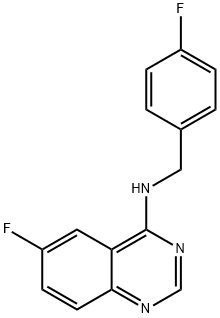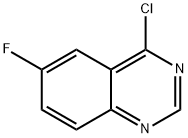Description
Spautin-1 (1262888-28-7) is a specific and potent autophagy inhibitor. Spautin-1 promotes the degradation of Vps34 PI3 kinase complexes by inhibiting two ubiquitin-specific proteases USP10 and USP13 which target the Beclin-1 subunit of Vps34 complexes.1?Deranges dengue virion maturation.2?Spautin-1 inhibits autophagy in a Beclin-1 independent manner in primary epithelial ovarian cancer cells.3?Selectively induces cell death of mutant p53-expressing cancer cell lines under confluency.4?Cell permeable.
Uses
Spautin-1 has been used as an autophagy inhibitor:
- to study its effects on vascular, glial, and neuronal alterations in the oxygen-induced retinopathy mouse model
- to evaluate its pre-treatment effect on the response of canine osteosarcoma cells to doxorubicin
- to study its effects on the production of interleukin (IL)-6 by oxidatively stressed dendritic cells (OS-DCs) in Luminex assay
Uses
Spautin-1 is a potent pharmacological autophagy inhibitor that promotes UVB-induced tumorigenesis. It is also a small-molecule drug that modulate autophagic pathways in different types of cancer.
Biochem/physiol Actions
Spautin-1 inhibits the activity of two ubiquitin-specific peptidases, USP10 and USP13, causing an increase in proteasomal degradation of class III PI3 kinase complexes, which have been shown to regulate autophagy.
Synthesis
GENERAL METHOD: 4-Chloro-6-fluoroquinazoline (1.84 g, 10 mmol), trimethylamine (1.06 g, 10 mmol) were mixed with p-fluorobenzylamine (10 mmol) in 5 mL N,N-dimethylformamide (DMF). The reaction mixture was heated to reflux for 4 h, subsequently cooled to room temperature and decanted into crushed ice. The precipitated solid was collected by filtration and purified by recrystallization with ethanol. The melting points of the resulting 6-fluoro-N-(4-fluorobenzyl)quinazolin-4-amines were all above 300 °C.
in vitro
spautin-1 promotes the degradation of vps34 pi3 kinase complexes via inhibiting two ubiquitinspecific peptidases, usp10 and usp13, that target the beclin1 subunit of vps34 complexes. spautin-1 had no effect on the growth and survival of bcap-37 cells under normal culture conditions but dramatically enhanced cell death in glucose-free media. under glucose-free conditions, western blotting for lc3 further confirmed that autophagy was induced, which was inhibited by spautin-1. similar results were obtained with mcf-7 and bt549 cells. therefore, spautin-1 can sensitize tumor cells to apoptosis under nutritional deprived conditions [1].
IC 50
0.6 and 0.7 μm for usp10 and usp13 activity, respectively
References
1) Liu et al. (2011), Beclin1 controls the levels of p53 by regulating the deubiquitination activity of USP10 and USP13; Cell, 147 223
2) Mateo et al. (2013), Inhibition of cellular autophagy deranges dengue virion maturation; J. Virol., 87 1312
3) Correa et al. (2014), Combination of AKT inhibition with autophagy blockade effectively reduces ascites-derived ovarian cancer cell viability; Carcinogenesis,?35 1951
4) Vakifahmetoglu-Norburg et al. (1987), Chaperone-mediated autophagy degrades mutant p53; Genes Dev., 27 1718



